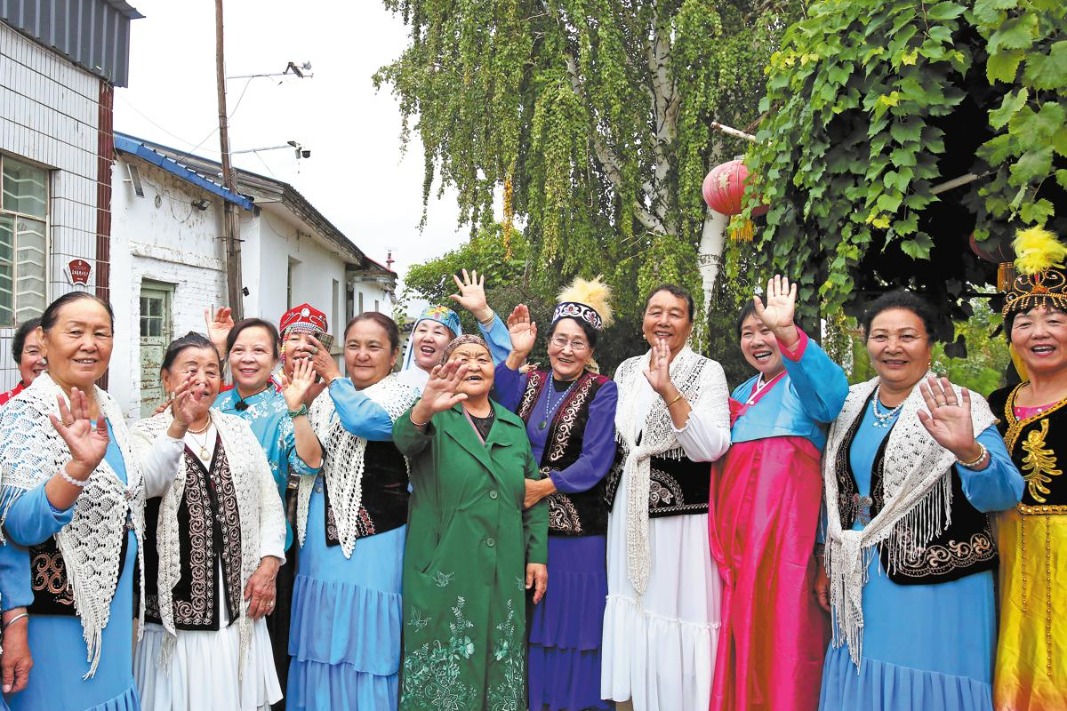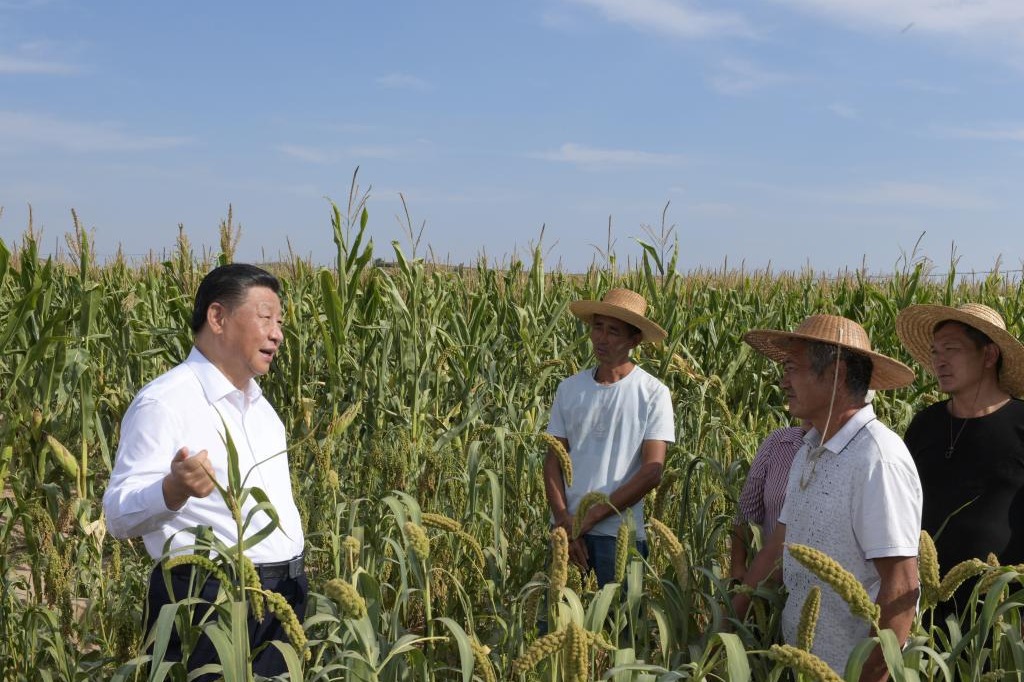Unity of form and content


China's whole-process democracy fits its national conditions
Since the outbreak of the novel coronavirus, the stability of China has been in stark contrast to the disorder in the West, proving the effectiveness of China's chosen path for development and the merits of socialist democracy with Chinese characteristics. Chinese democracy is a kind of high-quality democracy that is sound in concept and effective in practice.
In retrospect, China's pursuit of democracy has been a tortuous and arduous journey. Over the 100 years since the founding of the Communist Party of China, over the 70 years since the founding of the People's Republic of China and over the 40 years since China initiated its policy of reform and opening-up, the CPC has held high the banner of people's democracy, united and led the Chinese people in their unremitting struggle to establish the framework of socialist democracy, trailblazing a path for the development of socialist democracy with Chinese characteristics. In this new era, as the institutions that have guaranteed the rights of the Chinese people have matured, the advantages and effectiveness of socialist democracy with Chinese characteristics have become increasingly prominent. A broader, more realistic and more effective whole-process people's democracy has taken shape.
On Nov 2, 2019, on his visit to the Gubei Civic Center in Shanghai's Changning district, President Xi Jinping said: "China has embarked on a path of socialist political advancement with Chinese characteristics and developed whole-process people's democracy." On July 1, in his speech at a ceremony marking the centenary of the CPC, he further elaborated on the concept of whole-process people's democracy.
China's whole-process people's democracy permeates every aspect of people's lives. Consultative democracy is a vital vehicle of China's whole-process people's democracy, and a major invention in China's democratic practice. The country has been expanding the channels of consultative democracy such as multiparty cooperation and political consultation in formulating national policies and grassroots consultation to solicit opinions from local people and communities.
Whole-process people's democracy is reflected in all the areas and processes of Chinese democracy. In 2014, at a ceremony marking the 65th anniversary of the founding of the Chinese People's Political Consultative Conference, the national political advisory body, President Xi said, "If people merely have the right to vote but no right of extensive participation, in other words, if they are awakened only at the time of election, and go into hibernation afterwards, this is tokenized democracy."
Since 1949, the grassroots communities and the Chinese people have been mobilized to participate in the nation's extensive economic, social and cultural endeavors. Socialist democracy with Chinese characteristics encompasses a rich variety of rights such as voting, consultation, decision-making, administration and supervision. Those inherently linked political rights, which involve every democratic procedure, constitute whole-process people's democracy.
Whole-process people's democracy offers a whole package of democratic mechanisms. Before the government rolls out public policies or draws up legislation or handles major social issues, throughout the process it encourages extensive democratic engagement of various forms, such as public information disclosure, debates and hearings. For instance, before China adopted its Civil Code, it collected a total of 1.02 million suggestions from 425,000 people, which helped build a broad consensus on the legislation.
Whole-process people's democracy reflects the unity of form and content. The gold standard to gauge a country's democratic system is the real results, which tell whether the system fits its national conditions and how satisfied the citizens are. In China, democracy revolves around people's everyday life and social development. The CPC has been developing socialist democracy with Chinese characteristics to address the concerns of the public. In light of the actual needs of the people, the Party follows the laws of social development to continuously improve people's living standards and innovate forms and channels to expand the scope and quality of democracy.
Whole-process people's democracy advances social development and inspires public consensus. In his keynote speech at a ceremony marking the centenary of the CPC, President Xi said: "The Party has in the people its roots, its lifeblood, and its source of strength." The Party relies on its over 4.68 million grassroots CPC branches and more than 95.1 million members in all walks of life to promote democracy. It adheres to democratic centralism to maximize the consensus and strength of the society and leads the Chinese people on a path toward common goals.
Under the leadership of the CPC, China's democratic development adopts a mechanism of relatively centralized political power and decentralized market and economic rights, which helps stimulate economic development and maintain social stability.
Governing a large country such as China with a population of over 1.4 billion is not an easy task. Promoting democracy and stimulating social vitality to the utmost under the premise of social harmony and stability remain the underlying principles of China's political and social development.
The author is director of the Research Center of Contemporary Chinese Politics, the Institute of Political Science at the Chinese Academy of Social Sciences.
The author contributed this article to China Watch, a think tank powered by China Daily.
The views do not necessarily reflect those of China Daily.
If you have a specific expertise and would like to contribute to China Daily, please contact us at opinion@chinadaily.com.cn , and comment@chinadaily.com.cn


































